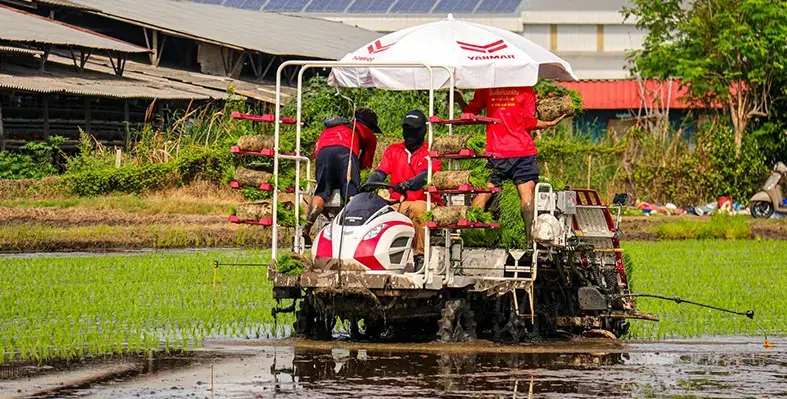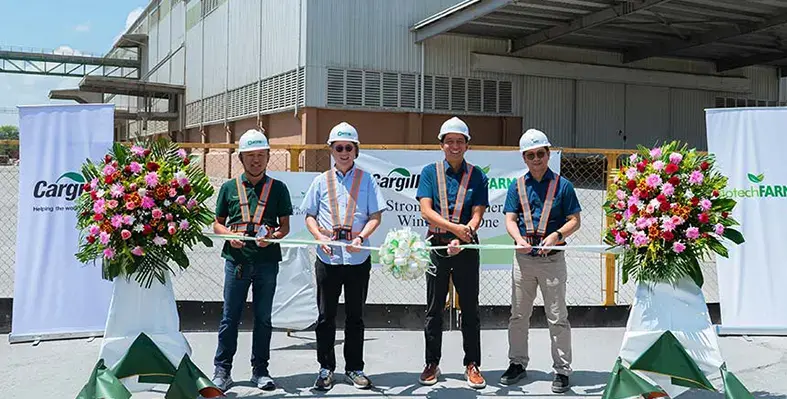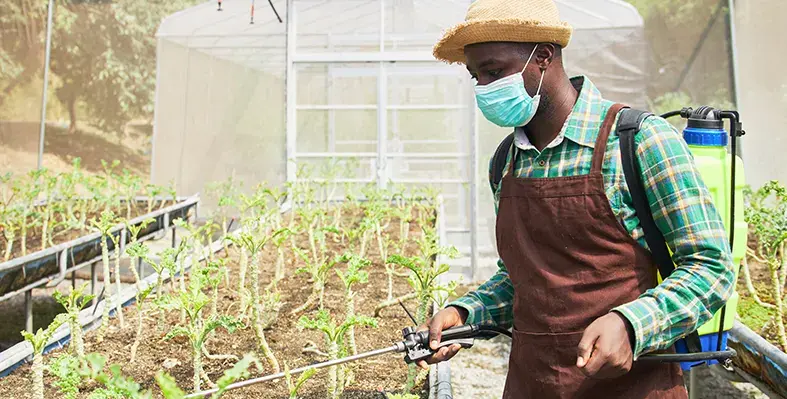Yanmar S.P. Co., Ltd. teamed up with Chia Tai Co., Ltd. and XAG Co., Ltd. for the opening of the 'Chia Tai Experience' at the Chia Tai Agricultural Center in Bang Nam Priao District, Chachoengsao Province, Thailand
The initiative is focused on improving Thai agriculture by giving farmers access to modern technology, practical know-how, and sustainable farming practices.
The Chia Tai Experience acts as a hands-on space where farmers can learn and try out new agricultural tools and techniques. Chia Tai has created a display showing rice farming methods suited for the region using its Crop Management Plan. This plan is designed to tackle common problems in local rice fields and introduce the idea of developing from 'Farmer to Professional Farmer.' XAG has set up a certified service area for agricultural drones, offering maintenance and support.
One of the main features of the event was a live demo of Yanmar’s YR Series rice transplanter, which took place at the Smart Farm Showcase. This area highlights how Yanmar’s technology is making rice farming more efficient.
This event follows the signing of a Memorandum of Understanding between Chia Tai, XAG, and Yanmar S.P. Co., Ltd. The signing was attended by Peng Bin, Founder and CEO of XAG; Manas Chiaravanond, CEO of Chia Tai; and Ryosuke Yamaguchi, President of Yanmar S.P. Co., Ltd. The agreement reflects a shared goal of using smart farming to help farmers grow better crops and improve their livelihoods.
President Ryosuke Yamaguchi said during the event, “At Yanmar, we believe that innovation in agriculture is crucial not only for increasing productivity but also for building sustainable futures for our farmers. Our collaboration with Chia Tai and XAG represents a unified effort to bring advanced technology directly to the fields, ensuring farmers thrive in an evolving industry.”
The Chia Tai Experience continues the joint work first seen during Yanmar’s 45th anniversary event held from 3 to 5 October, 2024, in Khon Kaen. At that event, Yanmar introduced the EF393T tractor and a new electric farming machine concept. The company also named Thai actor Nadech Kugimiya as its brand ambassador, highlighting its interest in promoting innovation and sustainability.
Together, Yanmar, Chia Tai, and XAG are working to support a shift toward smarter, more sustainable farming in Thailand, with a focus on real-world solutions that can benefit farmers across the country.









